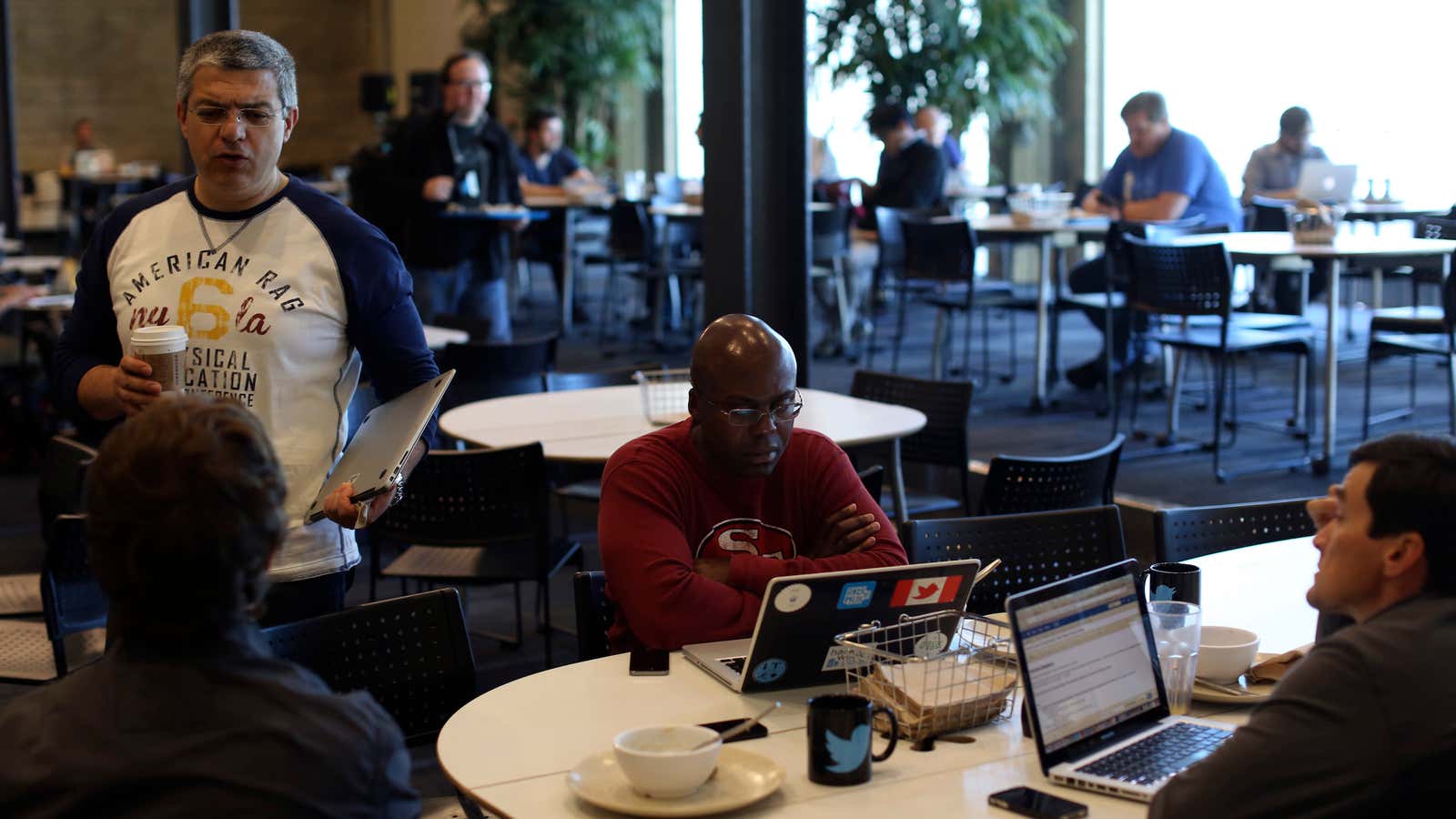When employees start to unexpectedly leave their companies, leaders start to panic. Top performers jump ship, companies want to know why, and so they turn to exit interviews to ask open-ended questions about defectors’ reasons for moving on.
Those almost always end up being pretty useless, according to Twitter CEO Dick Costolo, speaking at Fortune’s Great Place to Work conference, who said he had a “bone to pick” with that management practice.
“When companies have some regretted attrition, they start to do exit interviews to find out why people are leaving,” Costolo said. “The chart comes up showing the reasons people are leaving, and they sound exactly like the reasons you hear when you break up with somebody you’re dating. ‘It’s not you its me,’ or ‘I want to go to a bigger company.'”
People are rarely honest about their real feelings when ending a relationship, and the same’s true for leaving a company, he argues. When it comes to jobs, ”everybody quits their manager,” Costolo said.
That can be for a variety of reasons, according to Costolo, who cited managers failing to communicate well, give people ownership of projects, and meet one-on-one frequently with employees to discuss career progress, individual concerns, and barriers they might face.
That kind of useful feedback during exit interviews is particularly scarce in Silicon Valley, according to Costolo. It’s a small club, he explained, with managers and employees shuffling back and forth between relatively few companies. Your manager might end up in a leadership position somewhere you want to work in the future, with access to others with authority.
Departing employees are “not going to throw [their managers] under the bus,” Costolo said, so instead they choose to give less meaningful feedback.
Any company wanting to understand attrition needs to start by examining managers, Costolo said, and create a transparent environment in which people feel they can air frustrations about their managers before reaching their breaking point.
